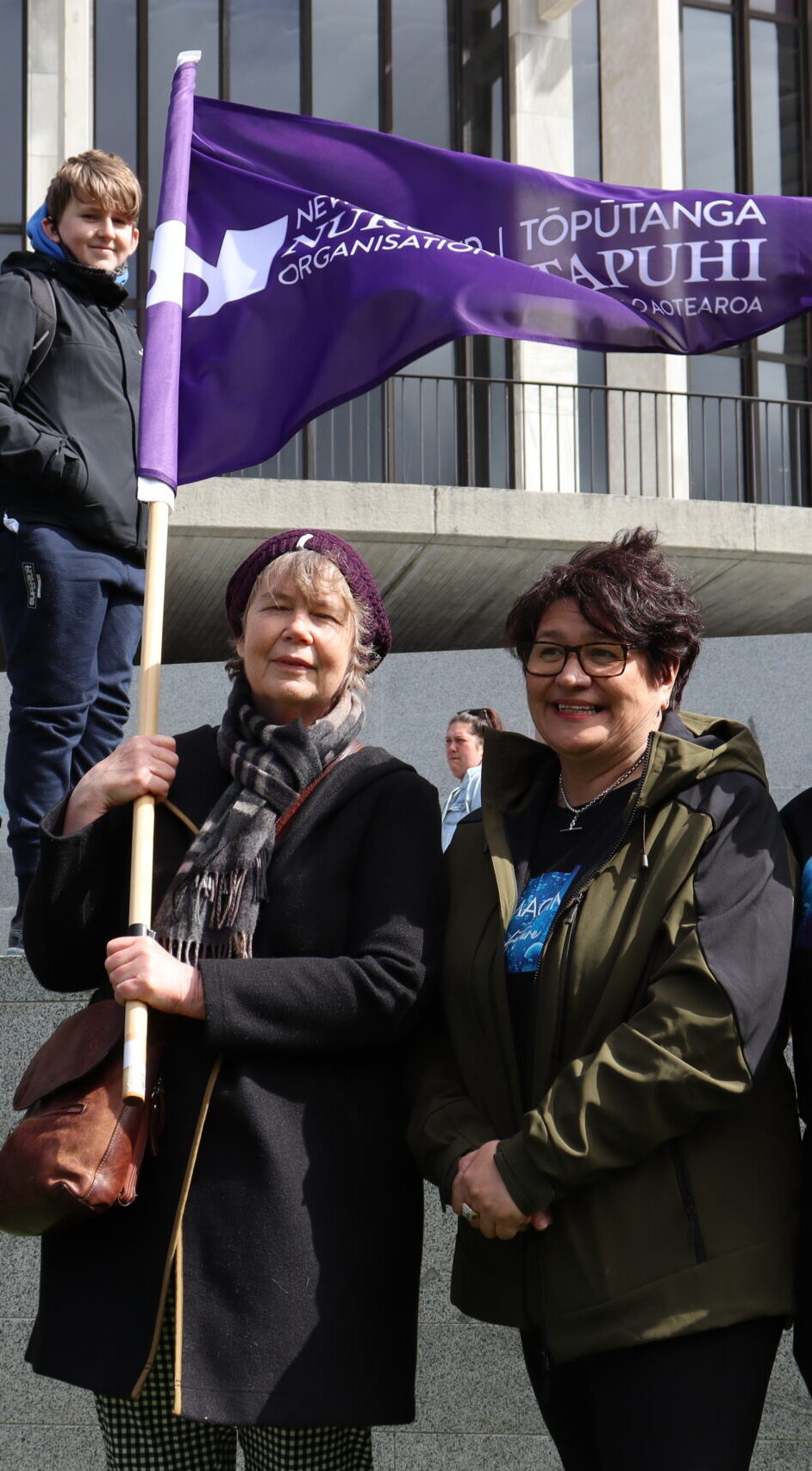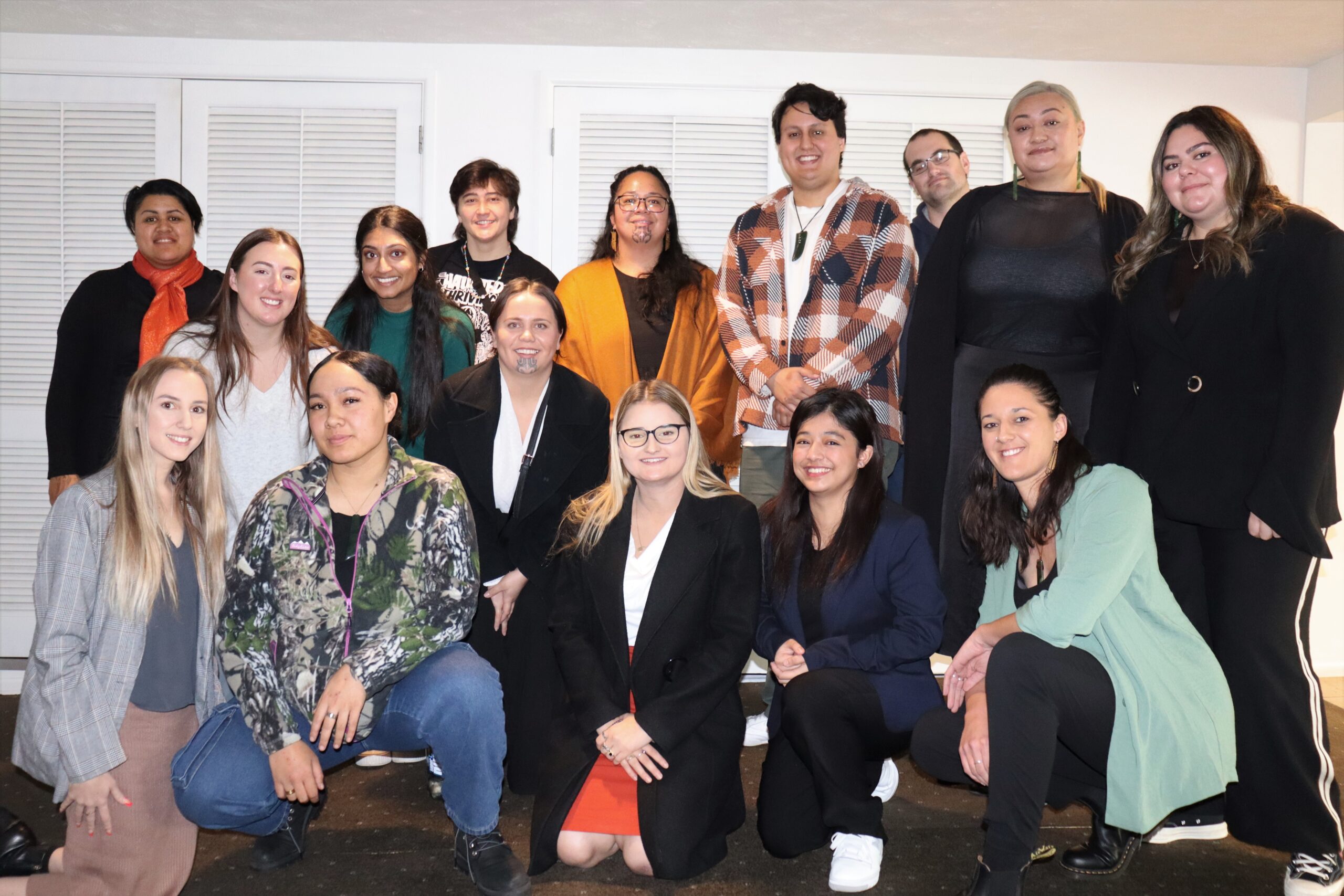NZNO kaiwhakahaere Kerri Nuku, president Anne Daniels and professional services manager Mairi Lucas were invited to meet Reti the evening of the day he was sworn in on November 27 — and stayed for more than an hour, leaving with a promise of regular catch-ups.
“It was a really good vibe,” Nuku said of meeting Reti, a Northland GP with whakapapa to Ngāpuhi, Ngāti Hine, Ngāti Wai, Te Kapotai and Ngāti Maniapoto. “He was warm — he’s a man who works in the community, was out there doing [COVID and meningococcal] vaccinations, visiting home to home — those things connected to us, as nurses.”
‘We went in there thinking we were going to be talked to — but what he did is say he was there to listen.’

After a mihimihi (greeting) in te reo Māori between Reti and the nursing leaders the hui was warm and constructive, ending with an invitation to return.
“We went in there thinking we were going to be talked to — but what he did is say he was there to listen,” Nuku told Kaitiaki.
Daniels said Reti wanted to know the nurses’ needs and perspective. “So he listened, he took notes — it was most unexpected,” Daniels said. “I came out of the meeting feeling hopeful — that he’d listened.”
“He’s very personable, but he also made it clear he is totally invested in improving the health and wellbeing of people in our country, particularly Māori and Pasifika, because of the worse outcomes they have.”
‘It felt like I was speaking to a person who really understood our views, our issues, equities and inequities, Māori rights. Then you walk out the door and you can see the other partners in the coalition and colleagues and it feels like I’ve walked out the wrong door.’
Key NZNO priorities discussed included rebuilding a homegrown nursing workforce to better represent Māori and Pasifika populations, pay parity for all nurses, student and nurse recruitment and retention, safe staffing levels with mandated patient-to-nurse ratios to complement the safe staffing system care capacity demand management (CCDM), and threats to the role of the nurse and kaiāwhina workforce.
NZNO’s key goal of embedding a te Tiriti o Waitangi approach across nursing to ensure Māori health was prioritised was also discussed — even as te Tiriti principles are being being reviewed by the new Government.
Nursing students need help during — not after — studies
Nuku said they advised Reti more financial support was needed for students while studying, rather than after graduation as per National’s bonding scheme. The scheme will pay up to $22,500 off nurse and midwife graduates’ loans if they stay and work in New Zealand for five years.
But student nurses — a third of whom drop out — have said they need urgent support during studying, particularly in their third year when 600 hours of unpaid clinical placements are required.
Reti promised them he would do more work on how to best support nursing students — but how that would look remained to be seen, Nuku said.

“He didn’t disagree — everything we talked about, he agreed. It’s just the devil’s in the detail.”
Chief nursing officer Lorraine Hetaraka would also be sharing nursing pipeline work underway, which NZNO had been involved with, Nuku said.
“We’ve made our intentions clear — we know there is a commitment to do more in that space, around recruitment and retention, especially students, to stop the nurses that we’re leaking to Australia at the moment.”
Nuku said she also felt “hopeful” after Reti talked about his strong connections to community, iwi, Māori organisations and primary care.
“I got a sense of ‘let’s get around the table and have the dialogue’ . . . but we need to be prepared to come with our evidence, because he is a very learned man.”
Te Aka Whai Ora
Nuku challenged Reti on how the higher Māori health needs could be met with the dismantling of Te Aka Whai Ora and its Māori-led approach that arose from the Waitangi Tribunal health services 2575 claim NZNO had given evidence at.
‘We’re yet to see how his vision of that will be realised.’
Reti said — even as Te Aka Whai Ora was dismantled — he wanted to “strengthen the voice and intent” of Labour’s Pae Ora legislation of which equitable health outcomes was key, and hoped to retain as many Te Aka Whai Ora staff as possible, Nuku said.
“We’re yet to see how his vision of that will be realised.”
With so many anti-Māori policies emerging from the newly formed National-New Zealand First-Act coalition, from suppressing te reo Māori to anti-equity approaches, Nuku said it felt oddly dissonant to be having warm kōrero with a minister of health she believed was genuinely committed to improving Māori health.
“It felt like I was speaking to a person who really understood our views, our issues, equities and inequities, Māori rights – then you walk out the door and you can see the other partners in the coalition and colleagues and it feels like I’ve walked out the wrong door.”
Nuku said she got a sense of “genuine caring” from Reti during the mihimihi and hoped NZNO dialogue would continue, despite the “toxicity” building around the Government.
‘New time, new relationship’
Daniels said he appeared willing to listen to those at the frontline.
“This is a new time and a new relationship,” she said. “It’s important to build relationships so we have the opportunity to walk in and talk about the issues at hand rather than fight every inch of the way.”
On the rollback of Smokefree Aotearoa legislation agreed in coalition talks, Reti told them he remained invested in reducing smoking, particularly among Māori and Pacific peoples. He also said it was part of his role to influence the coalition Government on this issue, Daniels and Nuku said.
‘It’s important to build relationships so we have the opportunity to walk in and talk about the issues at hand rather than fight every inch of the way.’
Responsibility for tobacco, vaping and smoke-free policies now sit with New Zealand First’s Casey Costello, who is Minister of Customs and Seniors and Associate Minister of Health and Police.
‘I will be listening’ — Reti
In an emailed statement to Kaitiaki, Reti said he wanted to meet with NZNO leaders early to show he was prepared to listen.
“I wanted and needed to send a clear signal that on day one of being sworn in, it was important for these groups to know that they had the ear of the minister.”
He planned to first focus on retaining student nurses, ensuring they had loan relief at the end of their studies.
Next, he would examine what hurdles prevented registered nurses who had left the workforce from returning — work which would require collaboration between nurses, the Nursing Council and professional nursing groups.
Shane Reti is only the second Māori minister of health — but the first was a century ago. Sir Māui Wiremu Pita Naera Pōmare was Minister of Health from 1923 to 1926.
Former Māori Party co-leader Dame Tariana Turia and Labour’s Peeni Henare have both been associate ministers of health in recent years.



